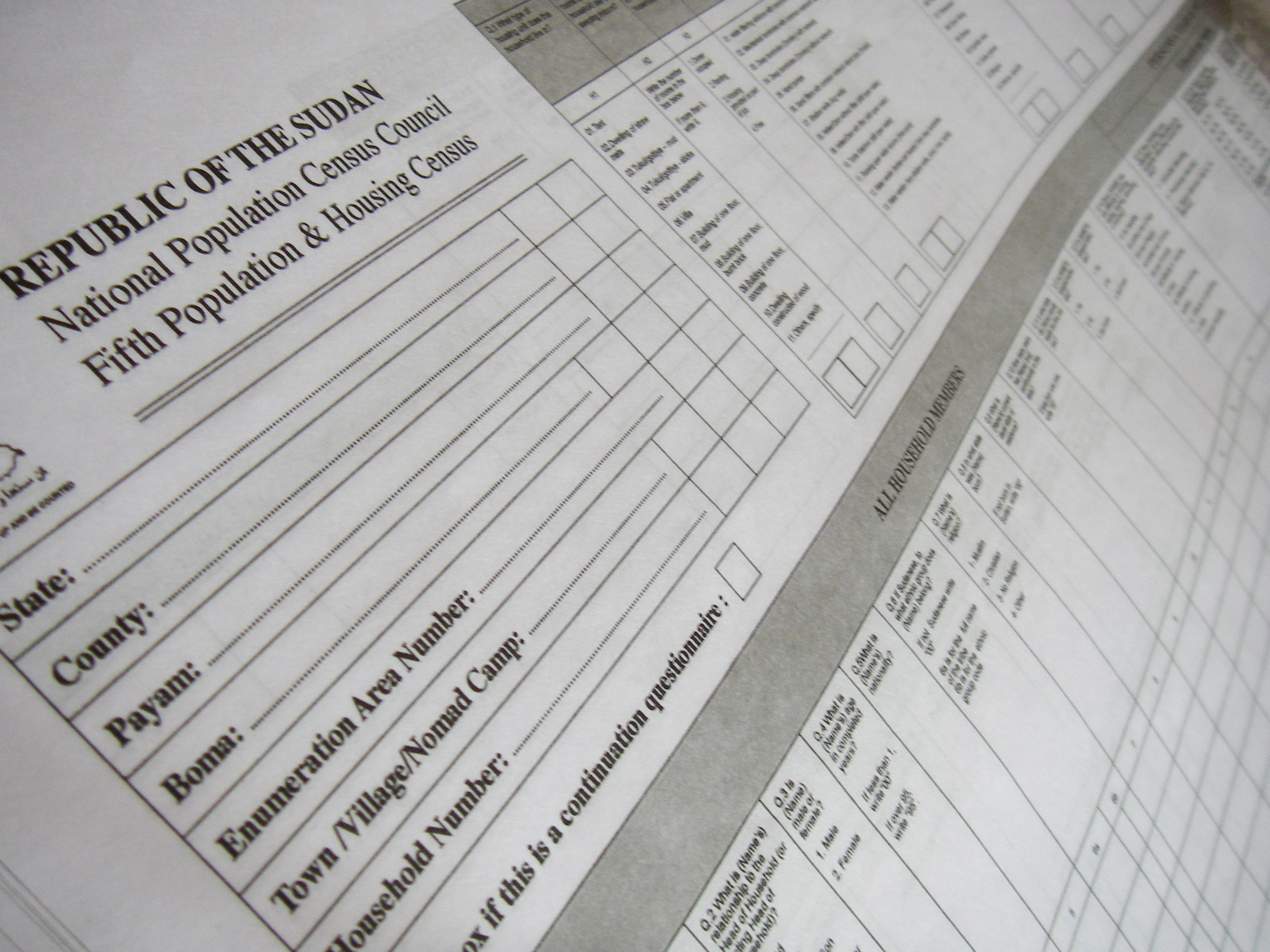Sudan's fifth national population and housing census, which is key to the 2009 elections, will be delayed, according to the UN Population Fund (UNFPA), the principal organiser.
"The census was due to take place between 2-16 February 2008, but due to delays in preparations, the technical committee has recommended that it takes place from 15-30 April," Abu Baker Waziri, UNFPA-Sudan census project advocacy officer, said.
"Some of the technical work has not been finished, such as printing work, so it needs more time," Waziri told IRIN from Khartoum on 6 December. "There is no other reason for the delay."
Preparations for the census have been going on throughout Sudan, but the exercise has remained dogged by controversy over questions of religion and ethnicity.
In its present form, it is expected to ask interviewees if they are from the north or south or another country and also about religion. Southern Sudanese leaders, however, have demanded that it also detail language or ethnicity.
"Sudan is a microcosm of communities, so we want ethnicity and religion reflected in the census form," South Sudan Vice-President Riek Machar told IRIN recently. "That way, Sudan will remain with that character."
The census comes more than 20 years after the last one. According to the Southern Sudan Commission for Census, Statistics and Evaluation, it will be Sudan’s most ambitious and important statistical project ever. Apart from providing a sample frame for subsequent household and agricultural surveys, its findings will be important in the political process.
According to the commission, the Comprehensive Peace Agreement (CPA) signed between north and south in 2005 highlights the census as one of the building blocks to peace in the country. The power-sharing agreement in the CPA, for example, notes that the allocation of National Assembly seats shall be confirmed or adjusted based on the census data.
 Photo: IRIN  |
| Map of Sudan |
Sudan also had one of the largest foreign refugee populations on the continent, including 285,000 refugees mostly from Eritrea. Others were from Ethiopia, Chad, Uganda, DRC and Somalia.
Conflict-related internal displacement affected about five million Sudanese, while another 600,000 have sought refuge or asylum status outside the country's borders.
"The census results will be used to inform the decision-making process within the government, business and NGO sectors, as well as enable policy and programme monitoring," the commission noted.
eo/mw
This article was produced by IRIN News while it was part of the United Nations Office for the Coordination of Humanitarian Affairs. Please send queries on copyright or liability to the UN. For more information: https://shop.un.org/rights-permissions





